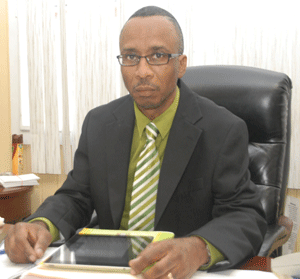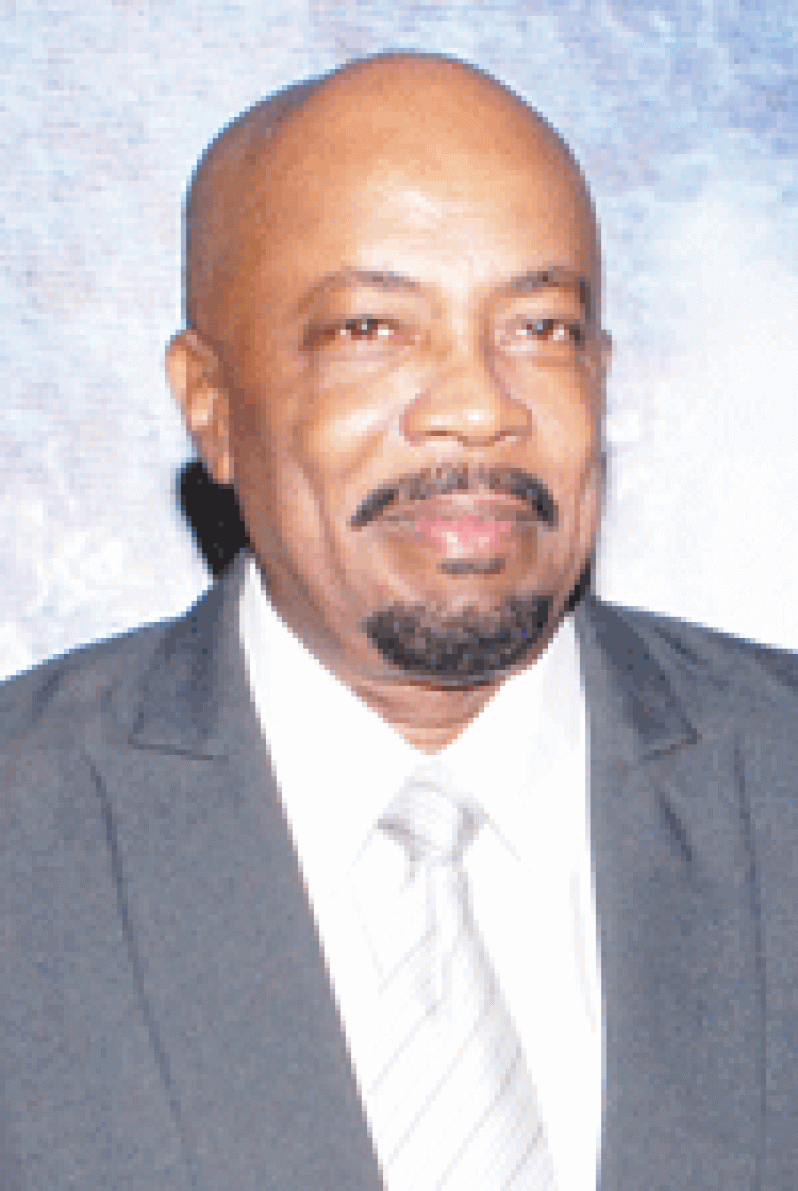MINISTER within the Local Government and Regional Development Ministry, Norman Whittaker met with senior officials of the Georgetown City Council, last week, in a bid to review the operations of that entity.
 The acting Town Clerk, the City Engineer, the officer in charge of solid waste management, the acting City Treasurer and the Personnel Officer were all present at that meeting.
The acting Town Clerk, the City Engineer, the officer in charge of solid waste management, the acting City Treasurer and the Personnel Officer were all present at that meeting.
Members of the media were excluded from that engagement, but the minister later explained the gist of what was discussed.
While bringing in more revenue is extremely important, Whittaker said controlling expenditure and understanding the need to spend more in providing service to the people – especially providing drainage and eliminating weeds from certain areas, repairing roads and disposing of solid waste – were equally important.
He said revenue collection improved with the collection of $283M over the period July/September, and the figure was more than what had been collected for the previous quarter.
He credited the improved collection to a more positive attitude the Debt Recovery Unit had been displaying; and in this regard, he recognised the work of Mr. Keith Burrowes, in tandem with the acting Town Clerk and her team, in achieving the improvements.
Whittaker also spoke on the issue of expenditure control, which was raised at the meeting. He noted that while spending is generally high, expenditure for the period July to September was in excess of $300 million, which was more than the revenue earned; though evidence showed that the team was making concerted efforts to reduce expenditure by addressing overtime with the union, and supervising fuel and lubricants consumed.
Whittaker disclosed that within the next 48 hours, three more garbage trucks were expected to be functioning to supplement those already in use.
He also noted that salaries had been paid, the debt owed to the solid waste contractors had been cleared; and amounts owing the Guyana Power & Light Inc, the Guyana Revenue Authority, and the National Insurance Scheme had similarly been paid.
In the case of GPL, he pointed out, a payment plan has been implemented, there has been an exchange of cheques in relation to rates and taxes, and a monthly payment arrangement has been put in place whereby the City Council has been able to clear off some of its debts.
He said he had spoken to the panel responsible for re- examining the number of residents that need to be re-categorized, as there currently is a significant number of them that should be paying commercial rates.
He further pointed out that the opening and closing hours of the Haags Bosch landfill site would be revised to hopefully be shifted to the period 7:00hrs to 19:00hrs, to facilitate businesses which open late.
Whittaker also spoke about street vending in light of the approaching Christmas holidays. He said this matter was strongly discussed and addressed. Issues discussed addressed the increase in solid waste, as well as the need to increase security around this time, especially on the pavements of the city.
He said the need for more robust oversight of the situation had been addressed, and it was recommended that businesses should be more responsible for their surroundings.
He said transformation of the surrounding areas will control the level of business commercial entities receive, so they should ensure their areas are kept clean.
Another matter addressed was that of debt forgiveness or amnesty, which is often used for political mileage by the council, he said. According to him, applicable legislation does not provide for amnesty, and the council is not empowered to grant debt forgiveness, especially since the idea of waivers is not supported in law.
Minister Whittaker explained that the existing legislation empowers the city to collect its rates and taxes; but if it is not doing so, it cannot hold the government to account, since that is the city’s responsibility.
He also said the City Council is authorised to have revaluation of properties done through the Chief Valuation Officer (CVO), or engage other persons who are qualified to so do, with the concurrence of the CVO.
He added that, over time, there have been accusations that persons and businesses owing taxes are friends of the government. This, he stated, is an unacceptable excuse from City Hall.
He said the City Council needs to go after those persons and corporate entities who owe rates and taxes, to make sure they pay what they owe. Should they fail to pay, the City Council could take them to court to recoup what is owed.
Whittaker pointed out that the issue of widening the council’s revenue base to collect more revenue does not hold well, since, if the council cannot collect 50 per cent of the current rates, the collection of higher rates cannot be guaranteed.
Recognising that the current collection is less than 60 per cent of what is owed, he urged the town clerk and team to go after that 40 percent that is not paying, because it is public knowledge that they are able to pay, but would not do so voluntarily.
The minister said there is no guarantee that increased revenue would be used for expanded services to the people, instead of going towards employment and administration costs.
He opined that City Council could do more for the public if they had an aggressive debt collection drive, and that is what the town clerk and team have been doing.
He noted that City Hall had already placed some persons before the court for non-payment of outstanding monies, while others have been approaching the entity to work out a suitable payment schedule, which sees them paying one-third of their debt, and having the balance liquidated over a certain period. The minister saw this as being the direction in which the council must move.
Additionally, with the continuously changing landscape of the city, and the increase in solid waste, recycling businesses are encouraged. A holding area or a temporary cell would be established for when Haags Bosch is closed, the minister said.
He stated that the council has had proposals from companies for recycling, which will significantly impact the amount of solid waste solid being dealt with.
He related that in the other nine regions, expressions of interest and site visits have led to various dumpsites being identified, but these await approval of the Environmental Protection Agency (EPA), or its advice on alternative measures.
Once everything has been put in place, agreements will be signed with contractors who will be responsible for managing the regions’ solid waste, Whittaker said.



.jpg)










